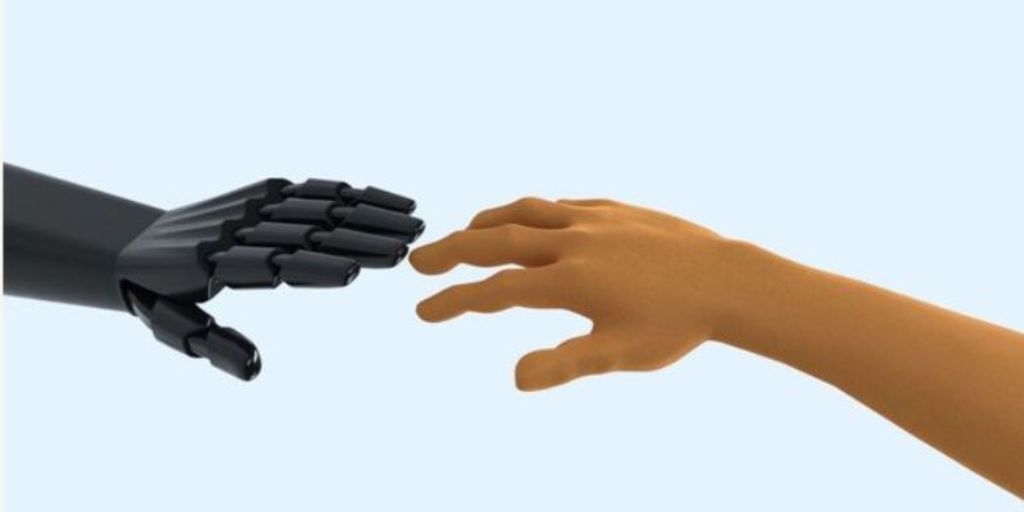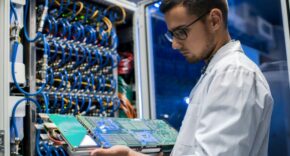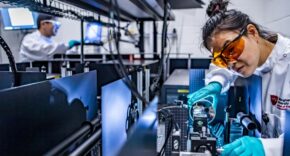
A former principal mechanical engineer from a leading UK prosthetics company has made significant strides in developing more comfortable, functional, and affordable upper limb prosthetics through Heriot-Watt University’s DeepTech LaunchPad programme.
David Yeudall, founder of Infinity DPM, participated in the inaugural cohort of the six-month accelerator initiative, which supports entrepreneurs working in robotics, AI, and advanced engineering to commercialise their innovative ideas and concluded this month [July].
During the programme, Yeudall made significant progress on multiple upper limb prosthetic projects. A key innovation in his approach is the use of softer, warmer materials to create more humanistic prosthetics compared to traditional rigid designs.
Yeudall’s innovations come at a crucial time for the prosthetics industry with the global market valued at more than $6.7 billion1 and expected to grow to $9.8 billion by 2032 – underscoring the increasing demand for more advanced, comfortable prosthetic solutions that can significantly improve users’ quality of life.
A 2021 study published in the US National Library of Medicine2 noted that “while commercial prostheses present rigid mechanical structures, emerging trends in the design of robotic hands are moving towards soft technologies.” The same study highlighted that “lack of comfort and function remain persistent reasons for upper limb prosthesis abandonment.”
“Traditional prosthetics can often feel cold, stiff, or uncomfortable for users,” said Yeudall. “We’re aiming to change that by developing softer, warmer materials that feel more humanistic. Our goal is to create prosthetics that not only restore functionality but also feel more natural and comfortable for daily use. This approach could make a significant difference in the lives of people who rely on prosthetics, potentially improving their quality of life and expanding their capabilities.
“The DeepTech LaunchPad programme has been instrumental in advancing our work. Access to the National Robotarium’s facilities at Heriot-Watt, particularly its 3D printing capabilities, allowed us to rapidly prototype and refine our designs. The programme also provided invaluable engineering validation and helped us articulate and pursue our core mission as a business: restoring functionality to amputees in a way that’s more accessible and comfortable.”
Jamie Allan, Heriot-Watt University’s DeepTech Launchpad programme leader, said:
“David’s progress exemplifies what we aimed to achieve with this programme, which marks an incredibly exciting step in strengthening Scotland’s innovation ecosystem. By providing deep tech entrepreneurs with the resources and connections they need, we’re helping to bring transformative technologies to market faster. This not only benefits the entrepreneurs but also has the potential to significantly impact people’s lives across various sectors, from medical devices to sustainability.
“As a global university, Heriot-Watt is uniquely positioned to help entrepreneurs translate their ideas into commercially viable solutions. Through the DeepTech LaunchPad, we’ve leveraged our world-leading facilities like the National Robotarium and our vast network of industry connections, in addition to the business and commercialisation expertise of the University’s Enterprise Team, to accelerate cutting-edge research toward commercial success on the global stage.
“The success of this pilot programme demonstrates how we’re empowering the translation of deep science into real-world impact. It’s a crucial piece in Scotland’s entrepreneurial ecosystem, enabling the creation of high-growth businesses with world-changing potential that can compete on an international scale. We look forward to continuing our engagement with these innovators and expanding the programme to foster even more groundbreaking technologies in the future.”
The DeepTech LaunchPad initiative was supported by Barclays Eagle Labs through the Department for Science, Innovation and Technology Digital Growth Grant and provided organisations with access to tailored business support services, facilities and equipment within Heriot-Watt and the National Robotarium, the world-leading centre for robotics and artificial intelligence based at the University’s Edinburgh campus.












